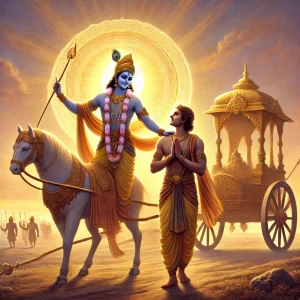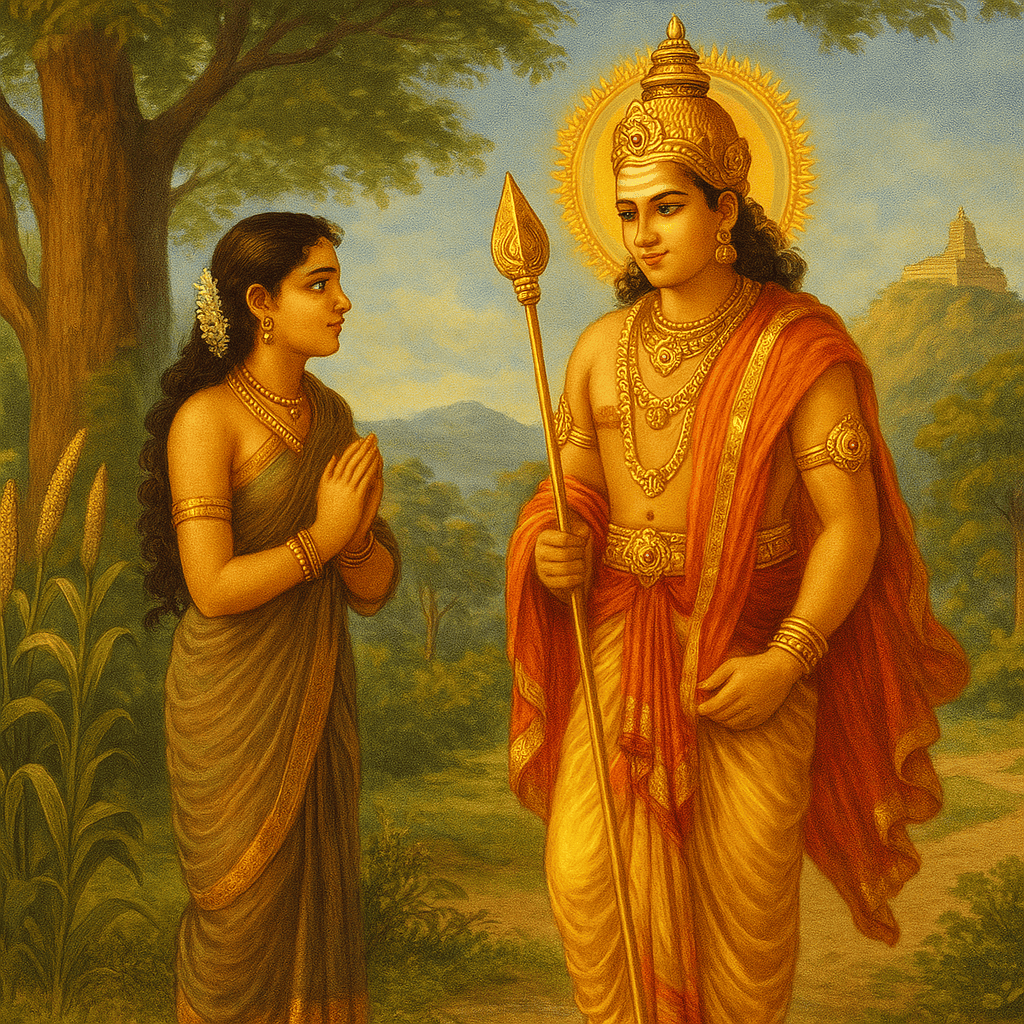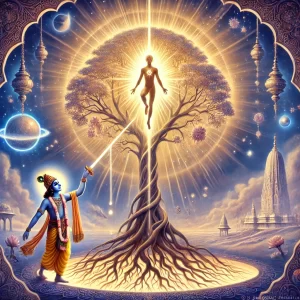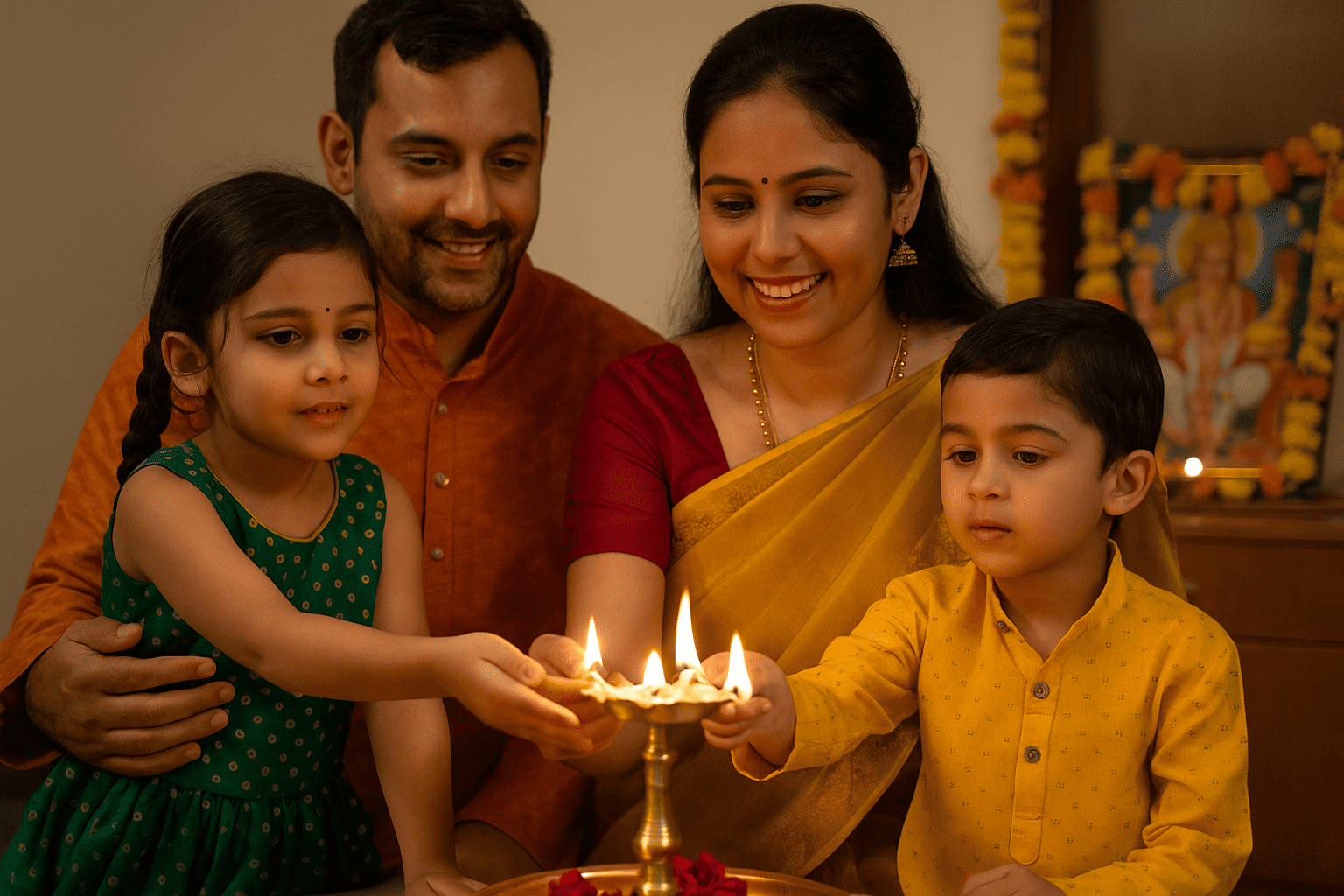

After great wars are fought, and kingdoms are restored, even gods seek a moment of stillness—a place where the heart can rest and love can bloom. For Lord Murugan, the divine warrior who had conquered the fiercest asuras and taught even the gods, such a place was found in the quiet hills of Thiruthani.
But the journey to this peaceful hill was not born out of victory—it arose from longing, love, and one of the most beloved episodes in Murugan’s divine life: his union with Valli.
Far from the palaces of heaven, nestled among the forests and rolling hills of Tamil Nadu, lived a tribal chieftain and his daughter, Valli. Raised among the trees and animals, Valli was free-spirited, kind, and full of devotion—especially to Lord Murugan. She had grown up hearing stories of the god who rode a peacock and wielded a shining Vel. In her heart, she had already chosen him as her beloved, even though they had never met.
Murugan, seated in his divine realm, knew of her devotion. Touched by her love, he decided to test it—and so he descended to earth, disguising himself as an old man.
One day, as Valli guarded the millet fields alone, Murugan approached her in disguise. With the playful charm of a divine trickster, he began speaking to her—first gently, then with humor, and finally, daringly proposing marriage. Valli, shocked and annoyed, rebuked the old man and warned him to stay away.
Murugan didn’t stop there.
He transformed into a hunter, and later summoned an elephant to frighten her. As she ran in fear, she cried out for protection—and who should appear, but Lord Murugan himself, in his radiant form. Valli, overwhelmed with emotion, realized it had been him all along. Her heart, already full of love, now overflowed with joy.
Thus, their divine love story was fulfilled, not through grandeur, but through playful pursuit, humility, and deep mutual affection.
After marrying Valli, Murugan chose not to return to his war camps or divine courts. Instead, he sought a life of tranquility. He retreated with his new bride to a serene hill—Thiruthani, where the winds carried the scent of sandalwood and the hills whispered with peace.
Unlike Thiruchendur, where he had fought fierce battles, or Swamimalai, where he had imparted divine wisdom, Thiruthani became the abode of his inner peace—a sacred hill not of conquest, but of contentment.
It was also here that Murugan is believed to have laid down his weapons, symbolizing the end of external battles and the beginning of inner stillness. The peacock rested, the Vel stood silently, and the god who once stirred the heavens now found comfort in the soft laughter of love and the rustling of leaves.
Today, the Thiruthani Murugan Temple stands atop a hill of 365 steps—one for each day of the year—inviting devotees to rise, not in haste, but in reflection. It is a place where couples pray for unity, seekers meditate on balance, and pilgrims celebrate the divine joy that comes not from struggle, but from surrender.
Murugan, seated calmly with Valli by his side, radiates serenity. At Thiruthani, we do not meet the god of war—we meet the god of the heart.







